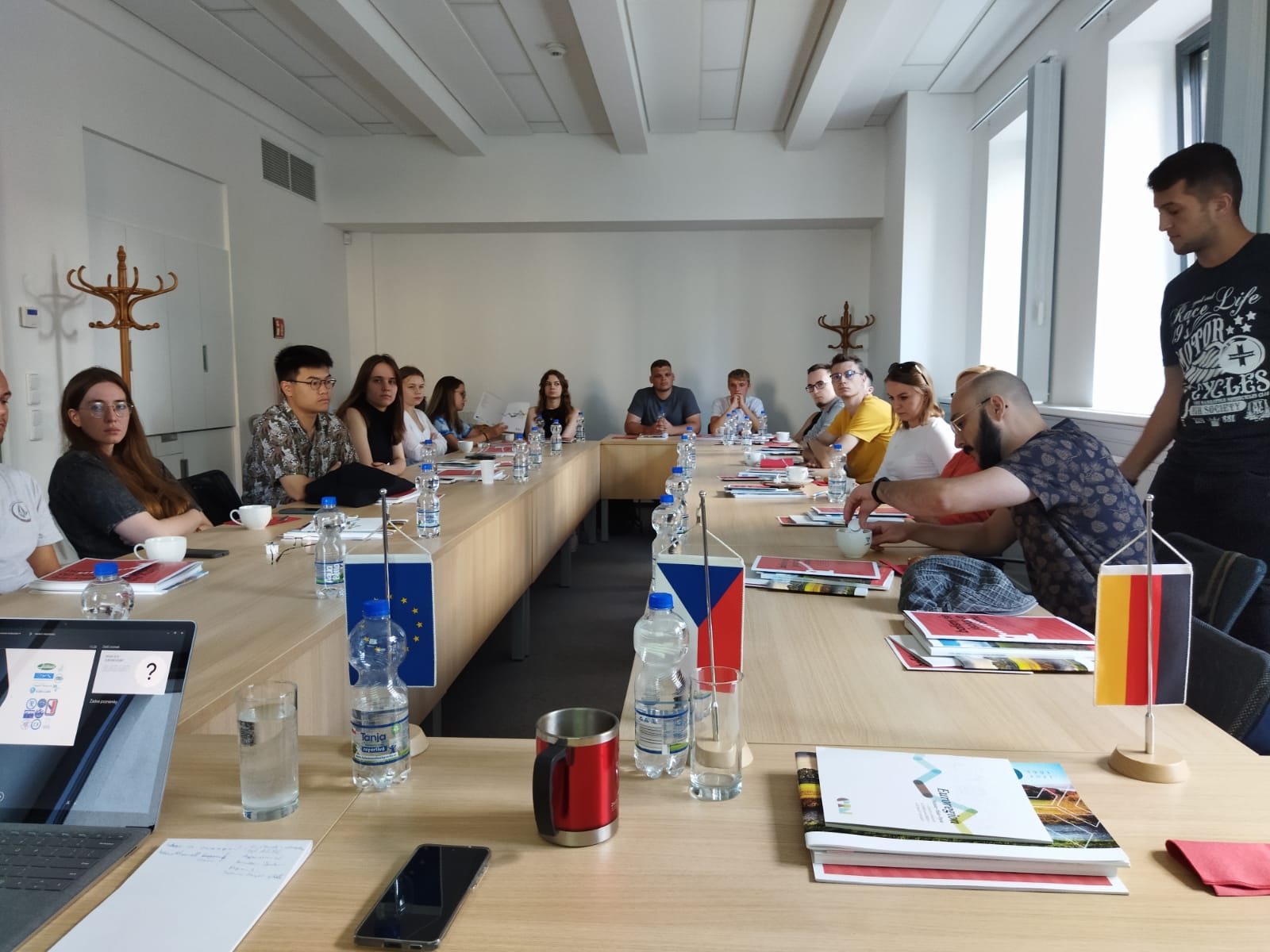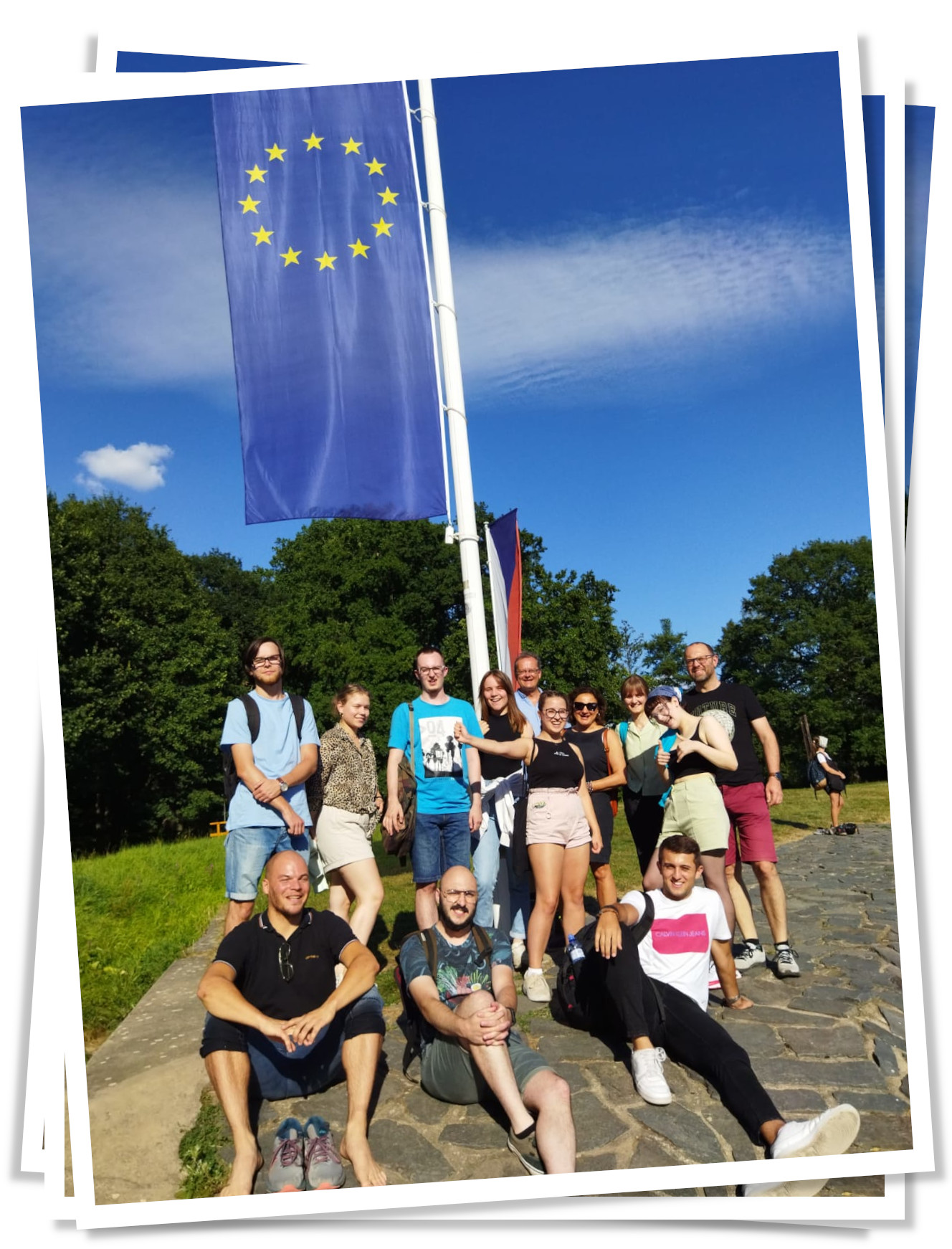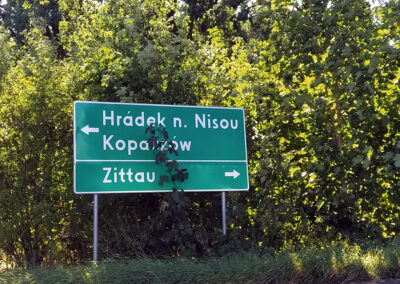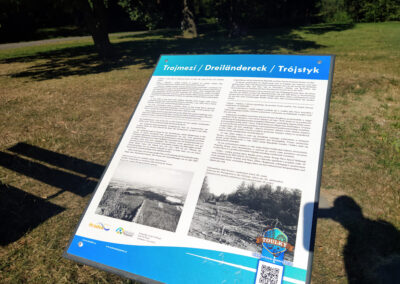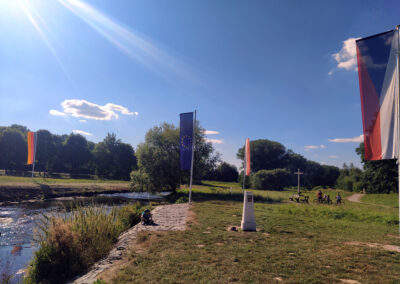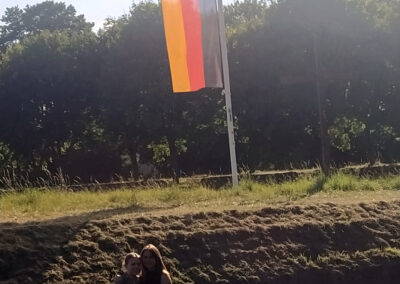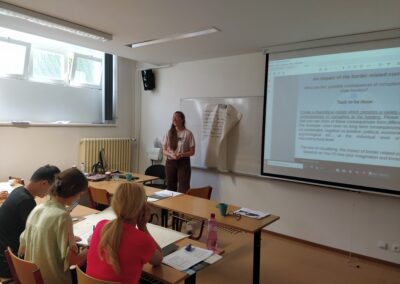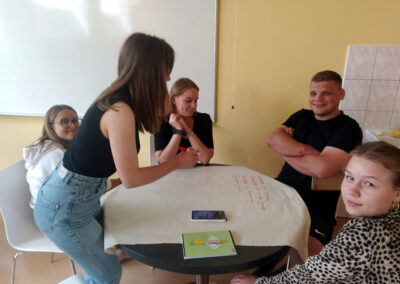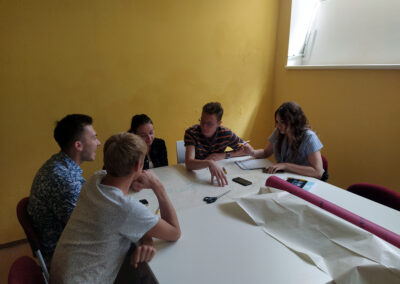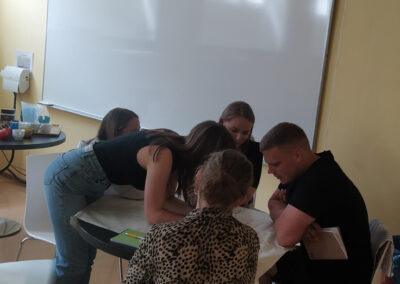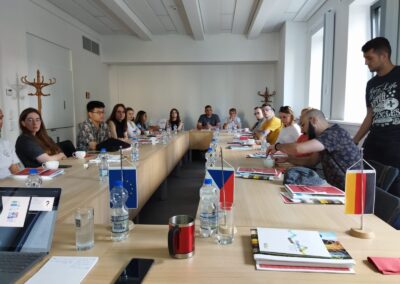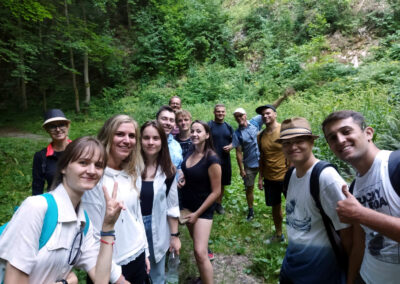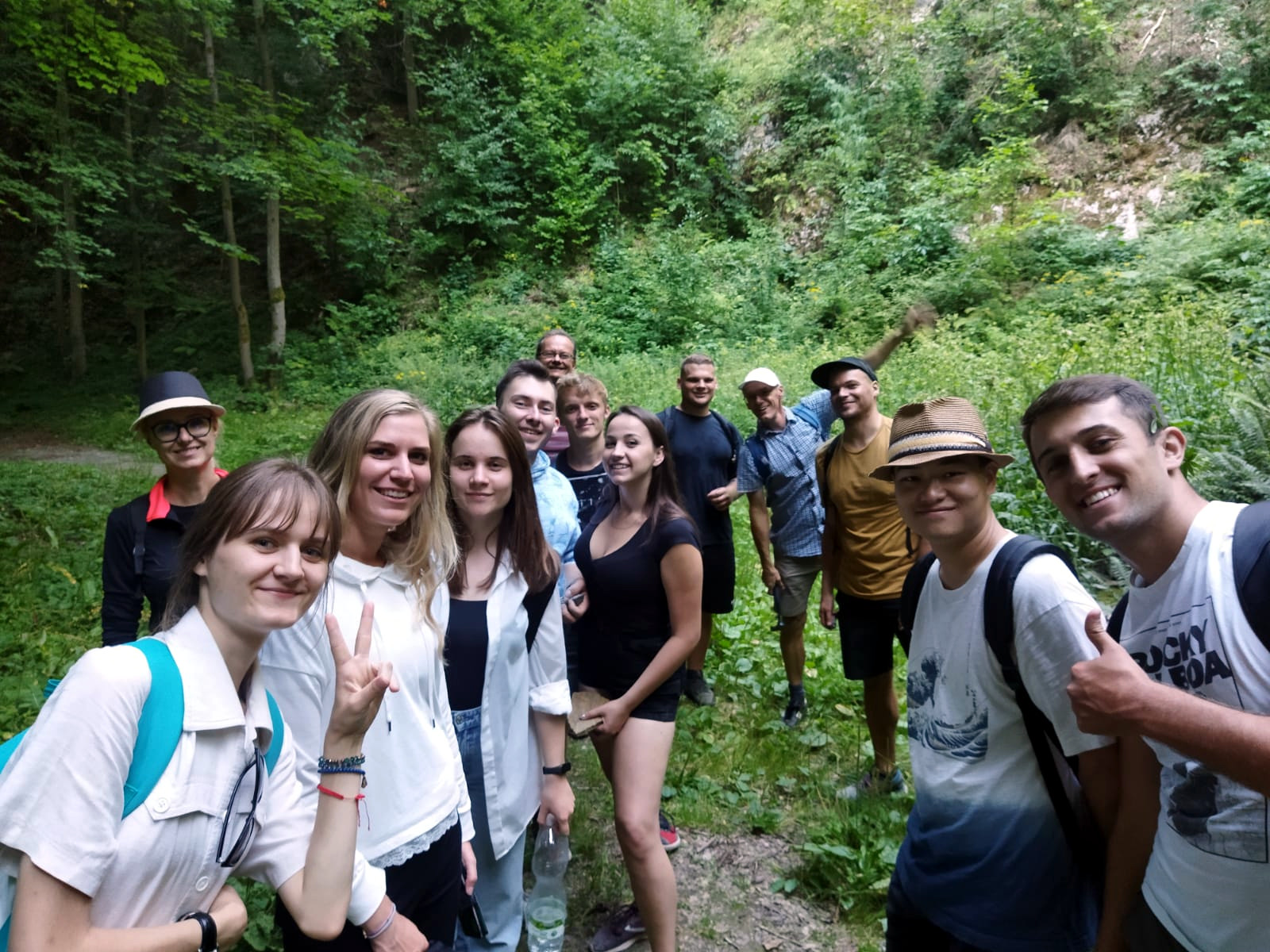
Międzynarodowa Szkoła Letnia Liberec 2022
Wizyta na pograniczu w ramach międzynarodowej szkoły letniej w Liberecu
W Liberecu w Czechach trwa szkoła letnia Cross-border co-operation in Central Europe in the times of re-bordering: story of success (?), która jest organizowana przez Uniwersytet Techniczny w Liberecu oraz Uniwersytet Opolski. Studenci Instytutu Nauk o Polityce i Administracji wraz ze studentami z Macedonii Północnej, Słowenii, Włoszech, Francji i Mołdawii przez cały tydzień uczestniczyli w wykładach i warsztatach dotyczących granic i współpracy transgranicznej. W ramach zajęć odwiedzili m.in. trójstyk granic czyli obszar gdzie stykają się granice trzech państw – Czech, Polski i Niemiec (Hradek nad Nysą, Zittau, Bogatynia). Szkoła letnia jest finansowana ze środków programów Erasmus + oraz CEEPUS.
Summer school: Cross-border Co-operation in Central Europe in the Times of Re-bordering: Story of Success (?)
Summer School, 8 – 19 August 2022, Liberec (with field trips to other 2 European countries), Czech Republic
The goal of the program is to provide the students with an intensive interdisciplinary insight – based on the mix of geography, political science, and history, into the way how is the cross-border co-operation (CBC), which is often labeled as a laboratory of European integration at a microscale, conducted in the EU with more special focus on differences in the cross-border co-operation (CBC) conduct in individual EU countries with the post-communist background.

Students will during this summer school experience at least the following:
- Visit 3 countries: the Czech Republic, Poland, and Germany
- Attend the following cities, where they will have an occasion to spend also some spared time: Prague, Görlitz and Wroclaw
- Liberec is just one hour away from Prague by a very convenient public transport
- Have an occasion to use the leisure-time activities around Liberec – mainly in the field of sports and culture – and use the trips organised to Prague, Germany, and Poland
- Czech Republic is a very safe and affordable country with low living expenses (see http://www.studyin.cz/living-costs/
Program Overview
The curriculum was designed to provide a unique academic experience in this challenging period. The key topics of the course cover the way how does current Europe approach the topic of cross-border cooperation with a particular focus on differences between “old” and “new” Europe. It reflects the current refugee crisis and offers various viewpoints on the links between CBC and Euroscepticism. It also makes possible cultural immersion through extracurricular activities including many field trips. Students are also integrated into the campus through numerous events, walking trips, fun and sports activities. A prolonged free weekend in the middle of the course enables student to make individual trips and explore other European countries.
Learning Outcomes
At the beginning of the program, students participate in an intensive introduction to Czech culture as well as the orientation at the university and the city of Liberec. The programme explains the concept of CBC as one of the key tools to overcome negative effect of national borders in Europe, with particular focus on the different approaches by “old” and “new” EU members and the role of the EU and its financial instruments in promoting CBC. The knowledge will be framed in the context of current European crisis so that students can understand its causes, different understanding in different European countries and observe difficulties in efforts to promote European identity.
This mix should help the students to obtain an interdisciplinary perspective of current Europe.
Field Trips are academically interlinked with in-class sessions and are designed to provide better understanding of the discussed issues. The program lecturers guide all of the following trips: Prague, Wroclaw and Görlitz, short trips to the neighborhood of Liberec.
Organizer: Department of Geography, Faculty of Science, Humanities and Education, Technical University of Liberec, 3 ECTS credits
Contact: Hynek Böhm, Ph.D., Academic Coordinator (e-mail: hynek.bohm@tul.cz, phone: +420 775 297 415)
Programme of the summer school:
Weekend 5-7 August 2022 – arrival to Liberec, accommodation at the university dormitory – see https://www.tul.cz/en/students/life-at-tul/
Orientation of the students in Liberec, introduction to the local context and the city of Liberec, introduction of course leaders and students´ assistance, guided tour through the city, trip to iconic Ještěd mountain
Introduction to the Czech Republic, major historical phases and events (when teaching in Liberec we will organise 2-3 teaching units a day – one teaching unit lasts 90 minutes)
Week 1
- History of the CBC in Europe after WWII: first co-operation structures along the Rhine on Dutch-German and Franco-German borders, the influence of the European single market on the CBC, INTERREG funds as multiplying factor for cross-border initiatives.
- Development of the CBC forms in the EU: Euroregions, Local groupings for territorial co-operation, European groupings for territorial co-operation (EGTC).
- CBC in the Czech Republic: development of the CBC after 1989, creation of first co-operation structures – euroregions.
- Visit of the Euroregion Nisa-Nysa-Neisse secretariat – Czech part, introduction to the work of the oldest Euroregion in the post-communist Europe
- Role of CBC as a “laboratory of European integration” – true in a rebordering time? – concrete cases
- Euroscepticism and CBC
- Rebordeing in Europe: the impact of refugee crisis and COVID 19 on cross-border integration
- Financing CBC from the EU Structural Funds: INTERREG programmes and their successors.
- How did EU funds influence the way the CBC has been conducted in Europe
- Trip to Prague, guided tour through Prague. Students will have an opportunity to spend the weekend in Prague, if they wish so (at their own costs)
Weekend 20 – 22 August 2022: the departure of students
Week 2
- Actors of the CBC: International organisations (EU, Council of Europe, OSCE, UN), states, regions, municipalities, other actors (NGOs, universities, entrepreneurs) and their motivations
- Introduction to the Visegrad Group co-operation and their cross-border links
- Introduction to Poland, Slovakia and Hungary including their CBC initiatives
- Bus departure to the divided town Görlitz/Zgorzelec, Czech-German relations, afternoon move to Wroclaw, overnight there
- Sightseeing, city tour, afternoon bus departure back to Liberec
- Self-study, preparation for the test based on the required readings
- Final test
